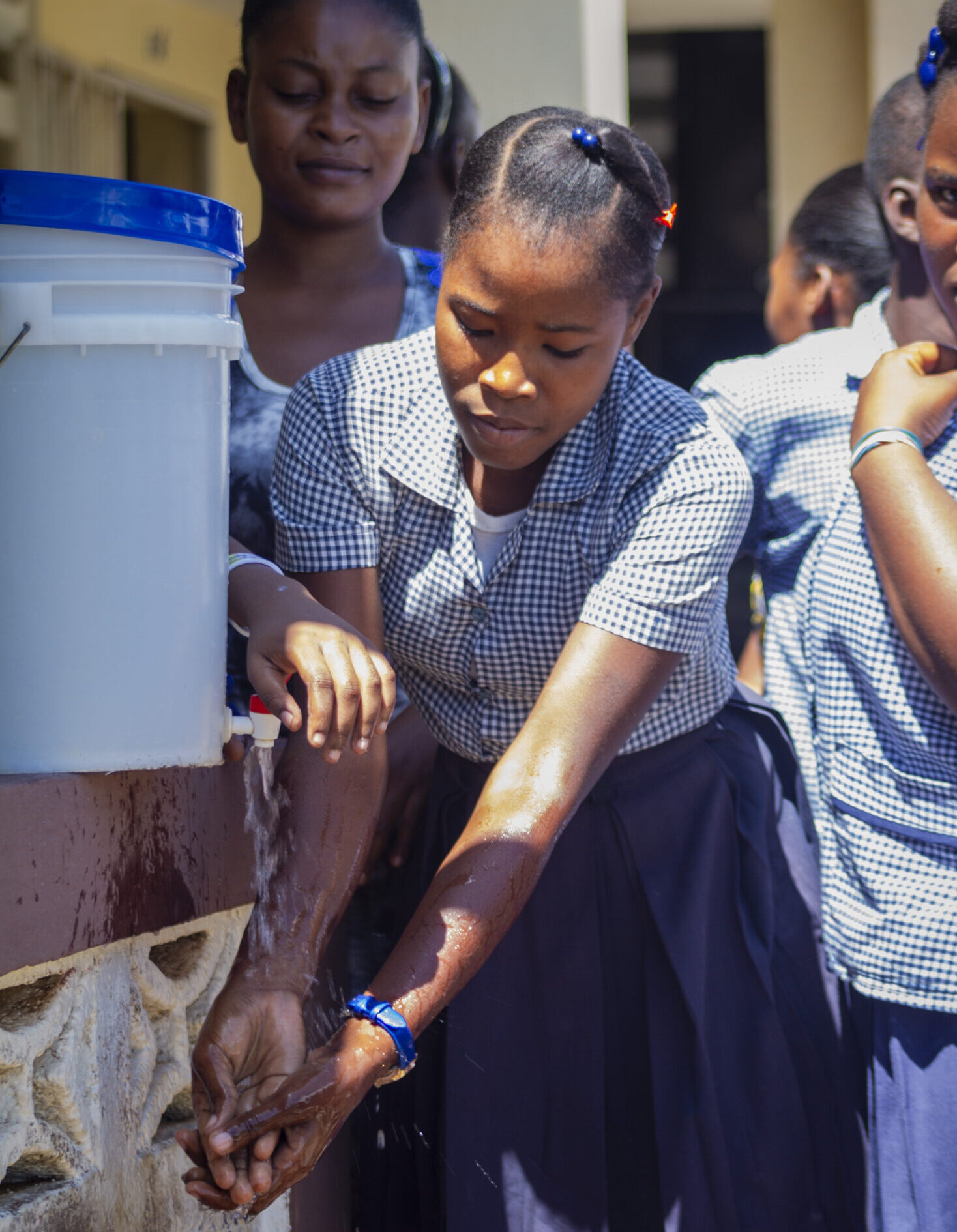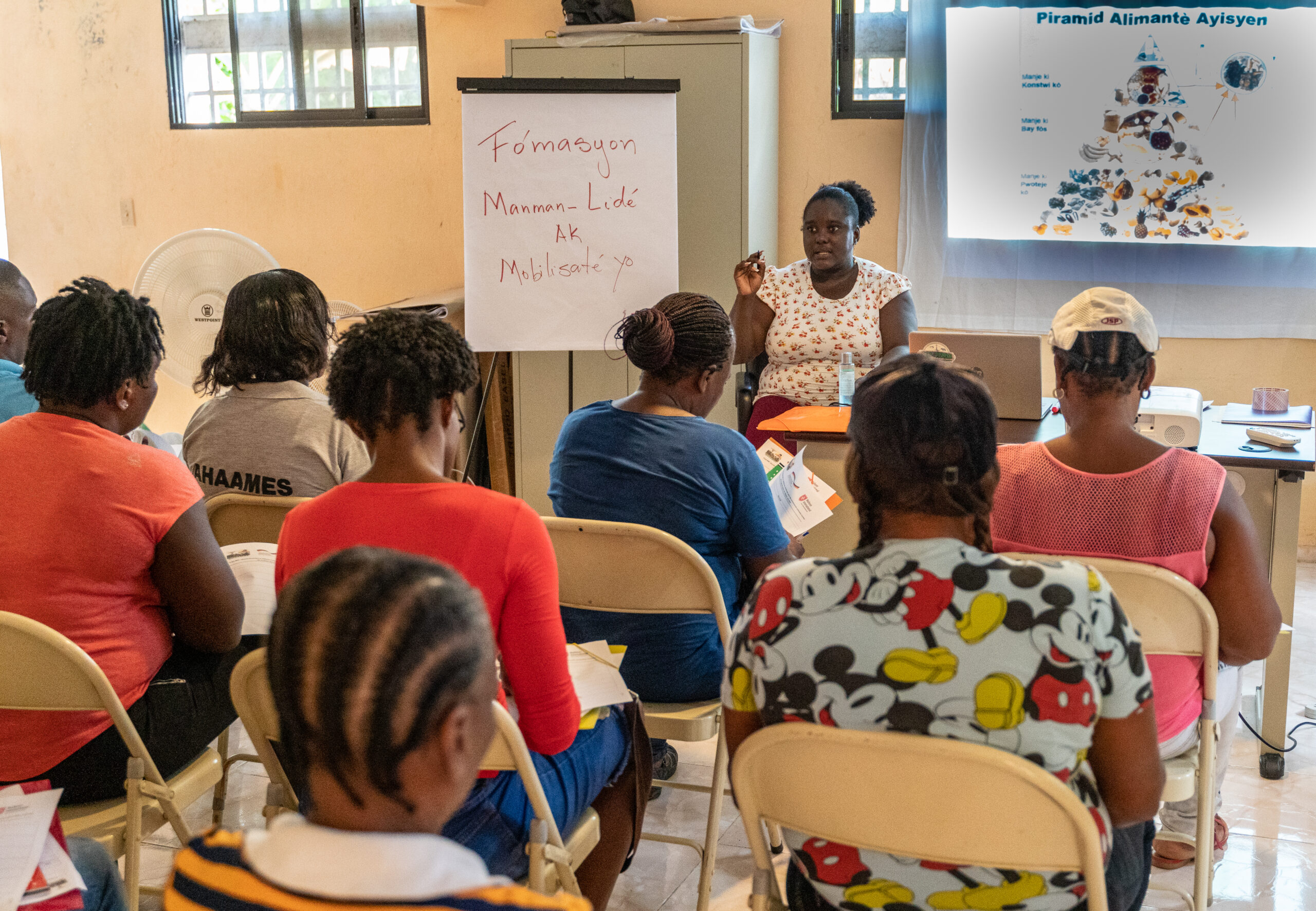Caribbean
Community Fair Promotes Public Health Awareness in Haiti
Words by Darlou Alexandre, MI Americas Communications Officer Haiti.
In Haiti, sayings like “what doesn’t kill you makes you stronger” are common. While this expression reflects cultural resilience, it can also downplay the serious consequences of poor hygiene. Recent statistics highlight the dangers of neglecting hygiene, particularly since Haiti’s cholera outbreak in October 2010. The epidemic caused approximately 820,000 infections and more than 9,700 deaths between October 2010 and February 2019. These sobering numbers underscore the critical role of hygiene—especially handwashing—in preventing disease.
 The devastating impact of preventable diseases like cholera highlights the need for initiatives that raise awareness about essential hygiene practices. In response, Malteser International Americas, in partnership the Haitian Association for Agricultural, Medical, Educational, and Social Assistance (AHAAMES), organized a community-focused fair. The event took place across several communities in the Nippes department, including Petit-Trou de Nippes, L’Asile, and Baradères, emphasizing the importance of hygiene, education, and sustainable practices for a healthier future.
The devastating impact of preventable diseases like cholera highlights the need for initiatives that raise awareness about essential hygiene practices. In response, Malteser International Americas, in partnership the Haitian Association for Agricultural, Medical, Educational, and Social Assistance (AHAAMES), organized a community-focused fair. The event took place across several communities in the Nippes department, including Petit-Trou de Nippes, L’Asile, and Baradères, emphasizing the importance of hygiene, education, and sustainable practices for a healthier future.
As part of the food security project, the fair featured educational workshops on topics such as the food pyramid, shared responsibility, and gender equality. However, the handwashing workshop stood out as particularly impactful, emphasizing the importance of hygiene in preventing disease. The workshop taught participants the correct handwashing technique through nine key steps and highlighted five critical times to wash hands. After learning, attendees participated in hands-on demonstrations to practice these methods.
Chrislande Blamand, a resident of the Moinson area in L’Asile, shared her excitement about applying what she learned. “This training will be very useful to me. Most people in my community don’t know how to wash their hands properly, but thanks to this training, I’ll be able to teach them and help protect against illnesses caused by germs,” she said.
 The three-day event was a tremendous success, engaging over 500 participants, including students from eight schools. This underscores the importance of community outreach to promote hygiene and public health. Initiatives like those led by Malteser International Americas aim to increase knowledge about practices like handwashing, contributing to the prevention of diseases like cholera and fostering healthier communities.
The three-day event was a tremendous success, engaging over 500 participants, including students from eight schools. This underscores the importance of community outreach to promote hygiene and public health. Initiatives like those led by Malteser International Americas aim to increase knowledge about practices like handwashing, contributing to the prevention of diseases like cholera and fostering healthier communities.
Programs like these depend on the generosity of donors to make a lasting impact. Your contributions help bring essential training, resources, and education to vulnerable communities that need them most. By supporting these initiatives, you can play an active role in improving public health, preventing disease, and empowering communities to create a healthier, more sustainable future. Every donation brings us one step closer to making a difference.